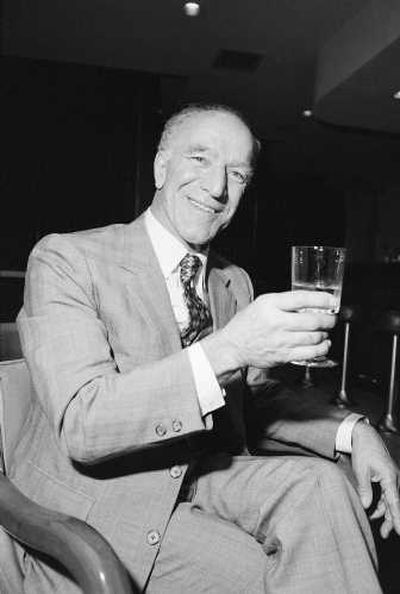California wine promoter Robert Mondavi, 94, dies

Robert Mondavi, the pioneering Napa Valley vintner whose drive and salesmanship revolutionized the way the world thought about California wine, died Friday at his Yountville, Calif., home, a spokeswoman for the Robert Mondavi Winery said. He was 94.
The son of an Italian-born grape wholesaler from California’s Central Valley, Mondavi was, at the end of his life, one of the best-known figures in American viticulture, with a name that was almost synonymous with California wine. His cabernets and chardonnays have been served at the White House and sold by the glass at Disney theme parks. His Cain-and-Abel exile from his family business after a fistfight with his brother was the source of legend.
His Mission-style winery in Oakville is a landmark and wine label icon. Though he had little formal training in winemaking, he is credited with the invention of fumé blanc in the 1960s and popularizing chardonnay, in the words of Wine Spectator, “as the great California white.” At a time when the phrase “fine domestic wine” was considered an oxymoron in the United States, he insisted that California wine could be positioned as a status symbol – a strategy that cleared the way for the modern era of $2,000 cult bottles of Screaming Eagle and trophy wineries.
Like most salesmen, he understood the power of a good story, and he liked to tell his. He spoke freely and frequently with reporters, historians and biographers and, in 1998, published “Harvests of Joy: How the Good Life Became Great Business,” his autobiography.
Rivals occasionally resented his innate gift for public relations. Some complained that he took too much credit for shaping the industry and the Napa Valley. Others contended that he took too little blame for the elitism and commercialism that eventually vexed both, and snidely nicknamed his Opus One winery “O Pious One.”
For all this, Mondavi was viewed as a powerful ambassador for wine and California, and he was recognized worldwide, even after the family lost controlling interest in the winery after a 2004 sale to Constellation Brands. The company’s labels ranged from his signature Robert Mondavi Reserve to the mass-market Woodbridge, and included collaborations with wineries from Chile to Tuscany.
“He has probably been the most important figure in the wine industry in the last half of this century,” Paul Gillette, then-publisher of the Wine Investor newsletter, told the New York Times in 1990.